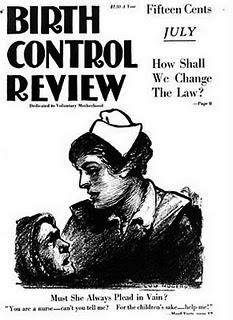History of birth control
History of Birth Control[edit | edit source]
Introduction[edit | edit source]
The History of Birth Control traces the methods and means by which people have controlled fertility and childbirth throughout human history. This history is diverse and spans across different cultures and societies.
Ancient Times[edit | edit source]
In ancient times, various cultures used a range of methods for birth control, including herbal remedies, physical barriers, and behavioral practices.
Egypt[edit | edit source]
- Ancient Egyptians used a mixture of honey, acacia leaves, and lint to be placed in the vagina to block sperm, essentially an early form of a diaphragm.
Greece and Rome[edit | edit source]
- In Ancient Greece and Ancient Rome, women used the silphium plant, believed to have contraceptive properties, until it was harvested to extinction.
Middle Ages[edit | edit source]
During the Middle Ages, knowledge and use of birth control methods varied significantly. Much of the knowledge from the classical world was lost or suppressed, especially in Europe due to religious influences.
19th Century[edit | edit source]
The 19th century saw a resurgence in interest and knowledge about birth control, particularly in the United Kingdom and United States.
Birth Control Movement[edit | edit source]
- Activists like Margaret Sanger and Marie Stopes were instrumental in advocating for birth control education and opening clinics.
20th Century to Present[edit | edit source]
The 20th century brought significant advancements in birth control technology and wider societal acceptance.
Hormonal Birth Control[edit | edit source]
- The development of the first oral contraceptive pill in the 1960s revolutionized birth control, offering an effective and convenient method for women.
Modern Developments[edit | edit source]
- The introduction of IUDs, injectable contraceptives, implants, and the morning-after pill have expanded options for birth control.
Social and Cultural Impacts[edit | edit source]
Birth control has had a profound impact on society and culture, influencing family planning, women's rights, and sexual health. It continues to be a topic of political and ethical debate around the world.
External Links[edit | edit source]
- World Health Organization: Family Planning/Contraception
- Planned Parenthood: Learn about Birth Control
References[edit | edit source]
- Guttmacher Institute: Birth Control – Past, Present, and Future
- National Center for Biotechnology Information: The History of Birth Control
| History of birth control Resources | |
|---|---|
Search WikiMD
Ad.Tired of being Overweight? Try W8MD's physician weight loss program.
Semaglutide (Ozempic / Wegovy and Tirzepatide (Mounjaro / Zepbound) available.
Advertise on WikiMD
|
WikiMD's Wellness Encyclopedia |
| Let Food Be Thy Medicine Medicine Thy Food - Hippocrates |
Translate this page: - East Asian
中文,
日本,
한국어,
South Asian
हिन्दी,
தமிழ்,
తెలుగు,
Urdu,
ಕನ್ನಡ,
Southeast Asian
Indonesian,
Vietnamese,
Thai,
မြန်မာဘာသာ,
বাংলা
European
español,
Deutsch,
français,
Greek,
português do Brasil,
polski,
română,
русский,
Nederlands,
norsk,
svenska,
suomi,
Italian
Middle Eastern & African
عربى,
Turkish,
Persian,
Hebrew,
Afrikaans,
isiZulu,
Kiswahili,
Other
Bulgarian,
Hungarian,
Czech,
Swedish,
മലയാളം,
मराठी,
ਪੰਜਾਬੀ,
ગુજરાતી,
Portuguese,
Ukrainian
Medical Disclaimer: WikiMD is not a substitute for professional medical advice. The information on WikiMD is provided as an information resource only, may be incorrect, outdated or misleading, and is not to be used or relied on for any diagnostic or treatment purposes. Please consult your health care provider before making any healthcare decisions or for guidance about a specific medical condition. WikiMD expressly disclaims responsibility, and shall have no liability, for any damages, loss, injury, or liability whatsoever suffered as a result of your reliance on the information contained in this site. By visiting this site you agree to the foregoing terms and conditions, which may from time to time be changed or supplemented by WikiMD. If you do not agree to the foregoing terms and conditions, you should not enter or use this site. See full disclaimer.
Credits:Most images are courtesy of Wikimedia commons, and templates, categories Wikipedia, licensed under CC BY SA or similar.
Contributors: Kondreddy Naveen

